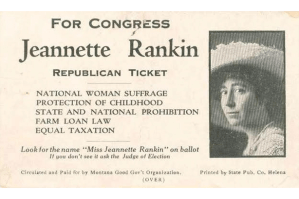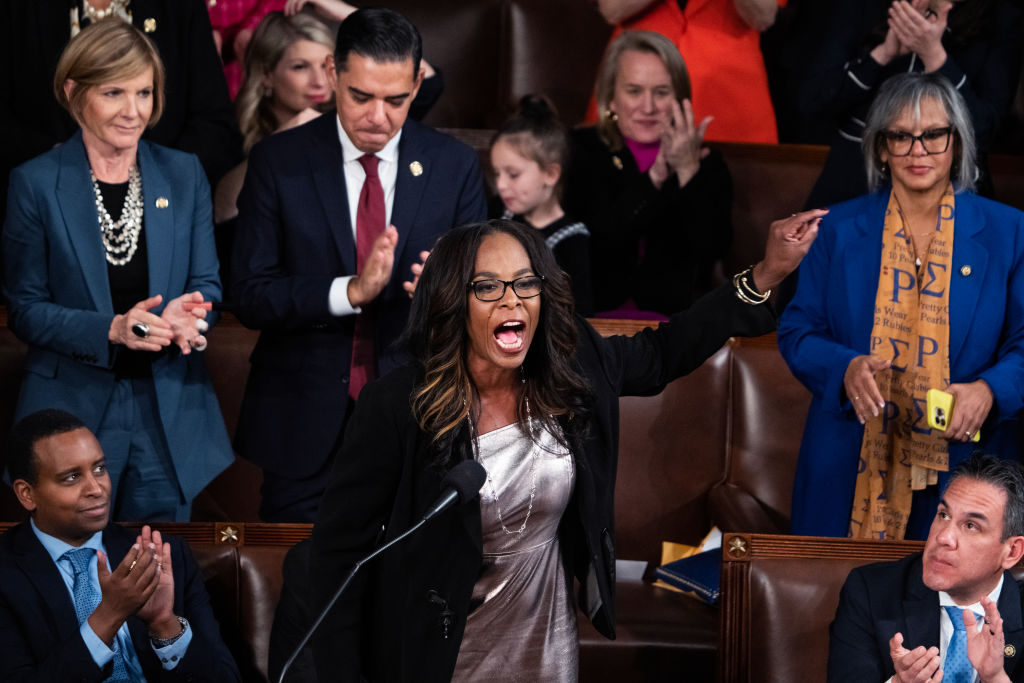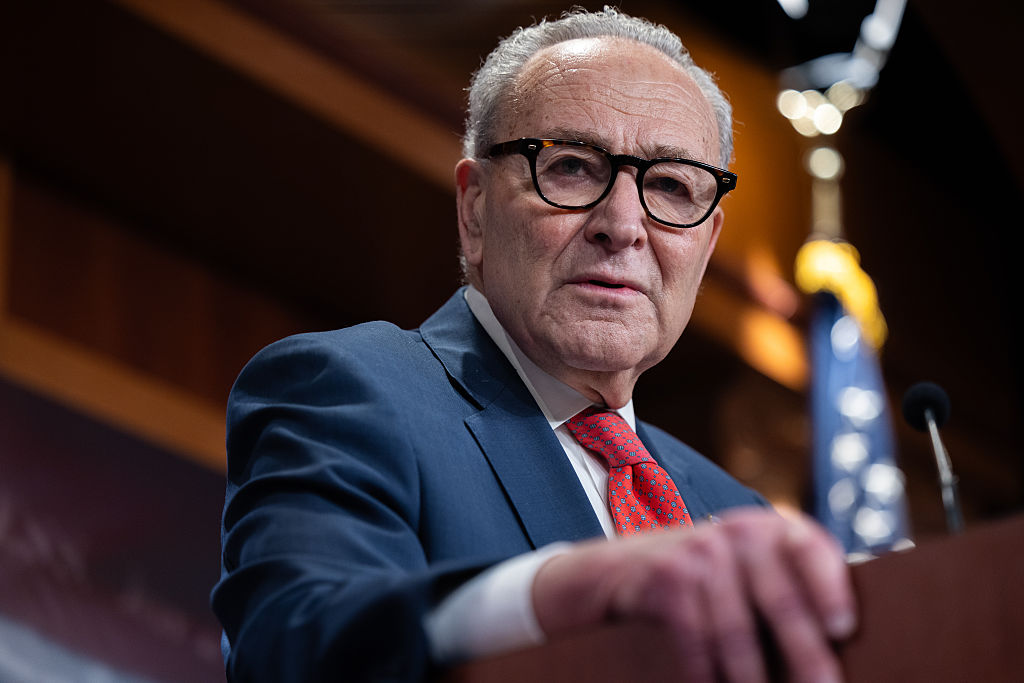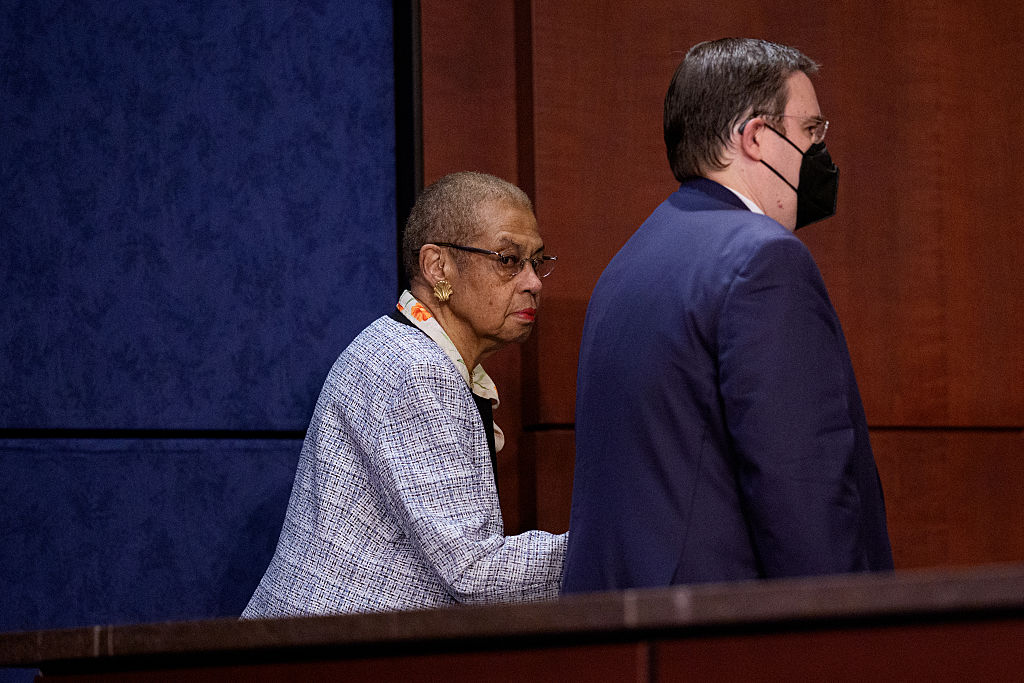“I will kill you if you fucking shut down TikTok,” a teenage boy warned to a member of Congress in a voicemail reviewed by The Spectator. “I will really really fuck you up. So don’t shut down TikTok. Bye bye!”
This week, Capitol Hill was inundated with a series of unusual callers — children, some as young as six years old. They had been enlisted by TikTok to forcibly push back against a bill that’s on track to sail through the House next week which forces the divestiture of a series of companies owned by foreign adversaries, like China in the case of the globally popular video app. TikTok is regularly accused of everything from feeding eating disorder content to girls to spying on journalists to extensively tracking user data — at the behest of the Chinese Communist Party, no less.
The aforementioned assassination threat was far from an isolated incident. That office received around a dozen; at least one other House office confirmed that they too received a threat to murder the member. “It turns out threatening to kill members is not an effective or persuasive tool,” a staffer for one of the offices noted. “In fact, it really seemed to backfire here.”
Beyond the assassination threats, offices of both parties were flooded with tens of thousands of calls, directed in part by TikTok itself, when it urged users to “stop a TikTok shutdown.” Countless kids took time out of their school days to tell their representatives that they will kill themselves if the government bans TikTok.
The child callers, unfortunately, proved fallible messengers, as they repeatedly showcased their lack of civic knowledge. “Calls I’ve received today: ‘Hello is this the Congress?’ ‘Hi, what website can I go to so I can vote against the TikTok bill,’” a House staffer told The Spectator — and these calls were the norm. A large number also hung up as soon as staffers picked up the phones.
The irony is that the bill at hand, the Protecting Americans from Foreign Adversary Controlled Applications Act, does not ban TikTok; it primarily “requires ByteDance to divest TikTok and other applications it controls,” according to Representative Cathy McMorris Rodgers, whose Energy and Commerce Committee, along with the bipartisan Select Committee on the CCP, ambushed TikTok.
“The CCP requires companies, like TikTok’s parent company ByteDance, to secretly share access to a US business or individual’s data without their knowledge or consent,” the Energy and Commerce Committee Republicans noted. The bill sailed through the committee, which previously put the screws to TikTok CEO Shou Zi Chew, before its previous efforts that would outright ban the app fizzled out following a deluge of TikTok influencers put pressure on the Capitol.
While TikTok’s earlier lobbying efforts were clearly successful, this time they backfired with members of both parties. One House office told The Spectator that the child callers were completely unaware of CCP control of their favorite app; some kids even told them they are considering deleting the app following the call.
Representative Tim Walberg, a longtime TikTok foe on the Energy and Commerce Committee, told The Spectator, that the campaign had the opposite of its intended effect. “TikTok deployed a strategy to feed users, particularly children, disinformation about the bill,” he said. “Doing this incidentally proved critics right and provided a real-time illustration as to why we should be concerned.”
One of the members of the other committee leading the charge, Representative Ashley Hinson, had an interesting solution to the flood of calls her office received: answering them herself. Hinson told The Spectator that her kids aren’t allowed to have TikTok, and that if a child threatened suicide while on the phone with her, that her immediate reaction would be to ask to speak to the parents right away.
By now, the TikTok divestiture effort already feels like old news — which was intentional, according to some who worked on the bill’s rollout. It’s not exactly usual for a monumental bill to sail through committee unanimously on the day of the State of the Union. But this stealth prevented TikTok from effectively responding.
After the bill’s passage through committee, President Joe Biden has repeatedly said that he will sign a bill like it — ironic perhaps, as his campaign has been leaning into TikTok, despite the national security concerns that many in his administration have with the app. Some credit Rob Flaherty, the former White House staffer now on the campaign’s digital side, with being behind the Biden 2024 TikTok push. Flaherty was responsible for cringe TikTok content like partnerships with the Jonas Brothers that went viral. Biden’s shift is a rebuke of his hyper-online staffer.
“How embarrassing it is for Rob and the Biden campaign to put their own self-interests over the security of young Americans only to have their boss pull the rug out from under their feet?” a China hawk said to The Spectator.
Despite early momentum, it won’t necessarily be smooth sailing for the bill from here on out. While the House is scheduled for easy passage next week, the Democratic-controlled Senate may be a different story — and Republican senator Rand Paul is already agitating against the bill, arguing that it is tantamount to caving to Biden.
“If Congress bans TikTok, they will be acting just like the Chinese communists who have also banned TikTok,” Paul wrote, seconding criticisms from former president Donald Trump, who cautioned that “if you get rid of TikTok, Facebook and Zuckerschmuck will double their business.”
Then there’s the Club for Growth — which has previously grilled potential endorsees on their TikTok ban stances. The Club, which recently made nice with Trump, is funded in large part by a Republican megadonor whose fund has a stake in TikTok worth tens of billions of dollars.
While the momentum is currently on the side of TikTok divestiture, anti-TikTok advocates have been outclassed by TikTok’s clever campaigns in the past. Another China hawk, lamenting the lopsided pro-TikTok playing field from an organizational standpoint, told The Spectator that he wants to see “donors get off the sidelines and get into the fight. The only people spending money right now are those fully captured by the CCP, like TikTok and [Club for Growth megadonor] Jeff Yass. This is bigger than politics — our future is at stake.”


























Leave a Reply